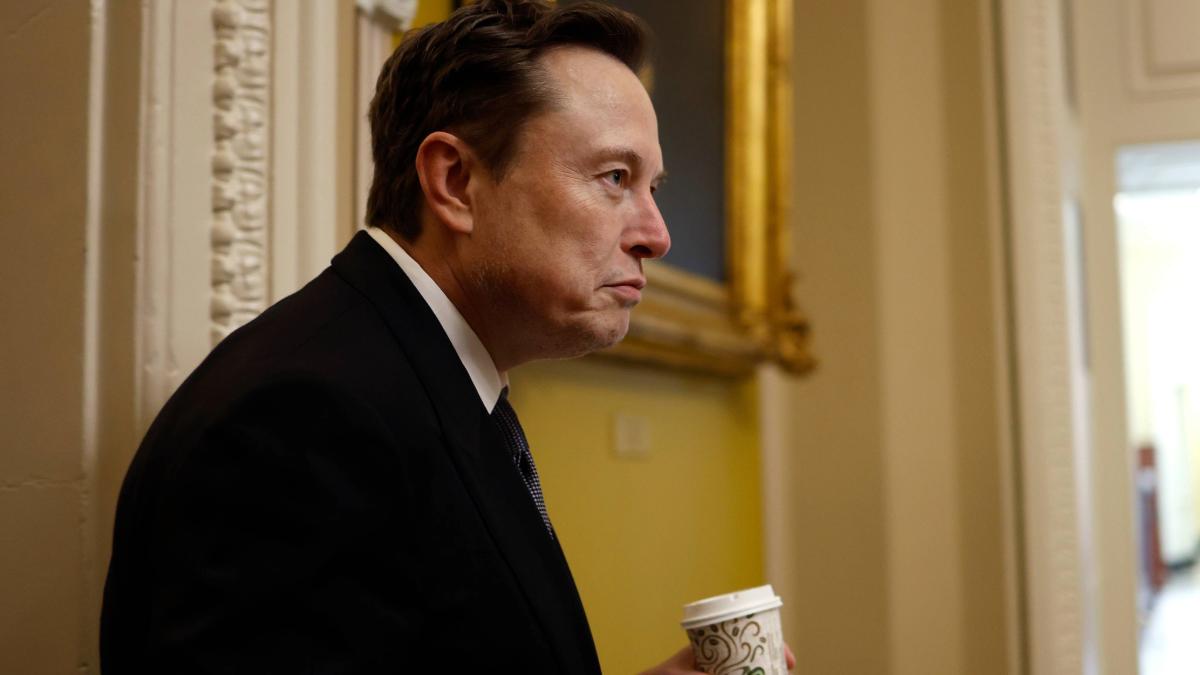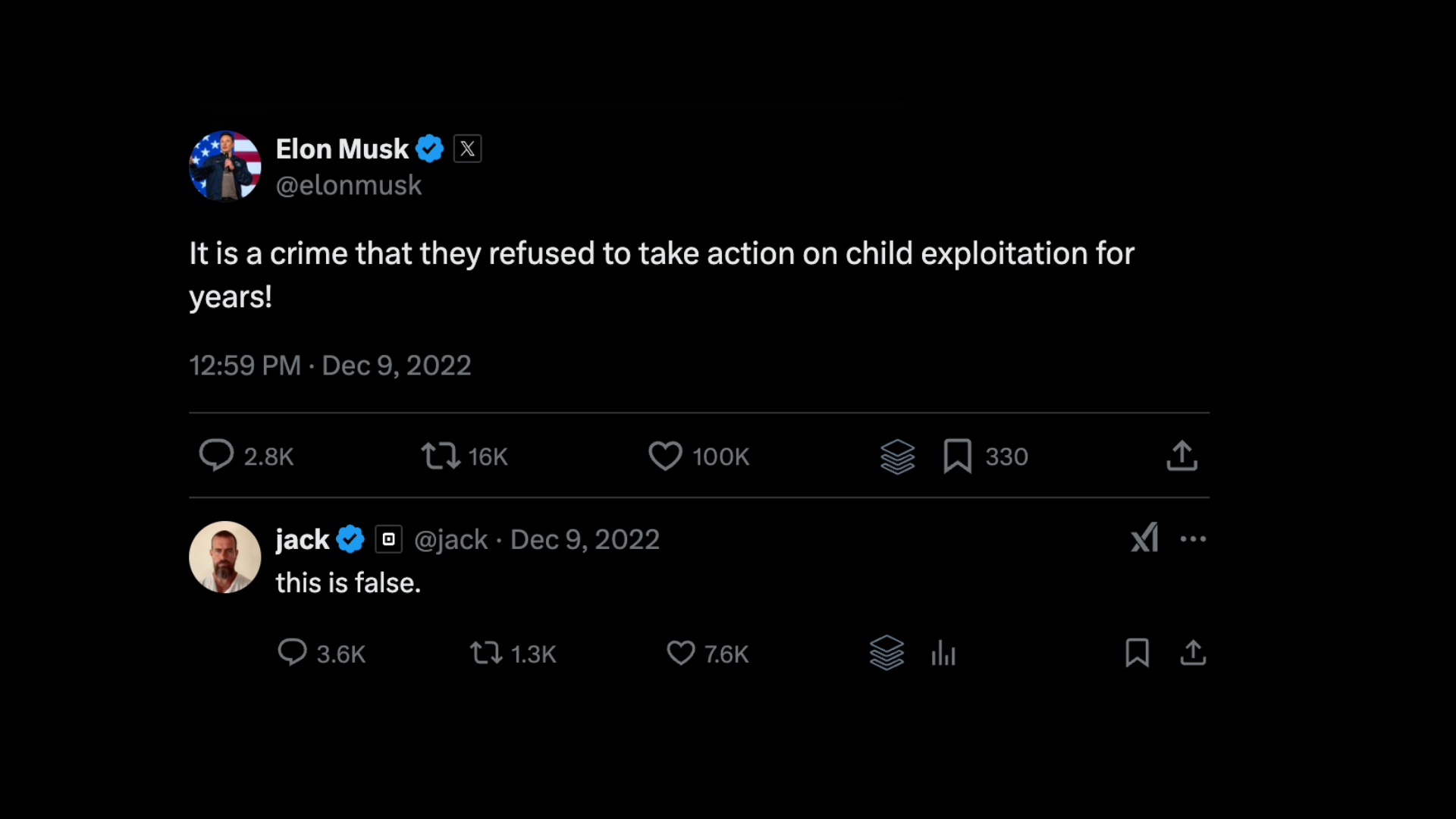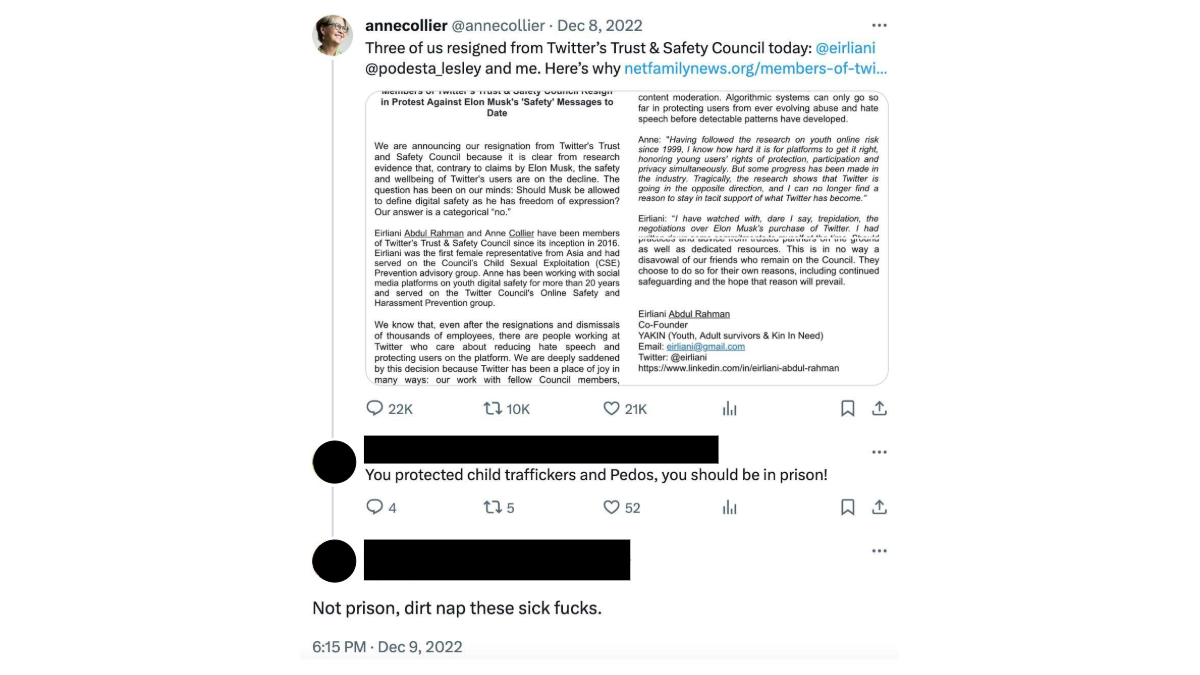At DOGE, Musk's Billionaire Interests Likely to Trump Public Interest
Eirliani Abdul Rahman, Anne Collier / Jan 31, 2025
December 5, 2024, Washington DC: Billionaire tech entrepreneur Elon Musk, chair of the Department of Government Efficiency (DOGE), on Capitol Hill. (Photo by Anna Moneymaker/Getty Images)
Two years ago, as founding members of Twitter's Trust and Safety Council, we resigned after the release of independent research showing a sharp rise in slurs and insults against Black Americans, Jews, and gay men on the platform following Elon Musk's takeover and layoffs of thousands of engineers and content moderators. We had front-row seats to his slash-and-burn approach to efficiency.
Now, Musk is applying his “slash first, fix later” approach to the United States federal government. As he did following his acquisition of Twitter (now X), he’s reportedly camping out in offices in the Capitol. The Department of Government Efficiency he leads–now grafted into the United States Digital Service, renamed the United States DOGE Service by Executive Order–is hiring staff, even as it channels the influence of Silicon Valley figures. As DOGE gets up and running, the shakeup is underway as Musk exerts his influence on the Office of Personnel Management, which just issued a dubious buyout offer to federal employees.
His naming of the new department after Dogecoin–a cryptocurrency that started as a joke–suggests this is all a game for the man called the "king of trolls." We fear his treatment of federal agencies, civil servants, and citizens will be no different from that of Twitter employees, advisers, and users two years ago. The role of the government is to provide public goods and regulate markets. We worry that a billionaire oligarch who has shown a predilection for being capricious would do more damage than good.
The demise of Twitter’s Trust and Safety Council
We highlight what happened at X/Twitter because Musk has repeatedly called his platform a “public town square.” Which is what it was – until late 2022. Twitter was a social-broadcasting tool highly valued by politicians, celebrities, journalists, researchers, educators, and many others. Twitter served a diversity of purposes and intentions, from sharing views to sharing work. On Twitter, anyone could be heard, regardless of the number of followers they had. When it comes to democracy and free expression, this was significant. For example, the platform played a key role in the Arab Spring of 2011 and the Black Lives Matter protests in Ferguson, Missouri.
After our December 8, 2022, resignation from Twitter's Council, engagement with our resignation tweet shot up when Musk got involved. He replied to a tweet by right-wing social media personality Mike Cernovich tagging our accounts. Musk responded derisively with, “It is a crime that they refused to take action on child exploitation for years!” In fact, as members of the Council, we were uncompensated advisers to Twitter on best practices in reducing online child sexual exploitation and other harms. Even though former CEO Jack Dorsey waded into the exchange to defend us (screenshot below), the harm was done. In spreading Cernovich’s lie to his then ~120 million followers, Musk’s tweet unleashed a torrent of abuse against us, including Lesley Podesta, who resigned with us. The tweet storm included death threats (second screenshot below). At its peak, we were receiving 4,000 tweets every 20 minutes. Four days later, Musk summarily dissolved the Council altogether.

Posts by X (then Twitter) owner Elon Musk and co-founder and former CEO of Twitter Jack Dorsey.

A post on X (then Twitter) by the author and threats by reply.
Musk's was a cold calculus for “efficiency” where Twitter was concerned. He fired over 80 percent of the staff within months of his takeover (and later tried to hire some back) without seeing much improvement in the balance sheet. The platform saw ad revenue drop by almost half between 2022 and 2023, from $4.5 billion to $2.2 billion year-on-year, according to the World Advertising Research Centre.
The X we see now is far from the Twitter of the past. Musk has turned the "town square" into his own bully pulpit, which he uses to amplify disinformation. Over the following two years, he adopted the same playbook as in the Twitter Council case, for example, by promoting accounts spreading disinformation on the war in Gaza that began in October 2023 and amplifying anti-immigrant rhetoric during the UK riots in August 2024.
Orchestrating a government shutdown
Here in the US, in more than 150 tweets last month, he called a spending bill aimed at averting a government shutdown "criminal" and "one of the worst bills ever" and falsely claimed it contained new aid for Ukraine and $3 billion for a new stadium in Washington. He demanded that Republicans back away from the deal, vowing political retribution should they fail to comply, tweeting, “any member of the House or Senate who votes for this outrageous spending bill deserves to be voted out in 2 years!” According to X’s statistics, the posts garnered tens of millions of views. He ended one post with the Latin phrase “Vox Populi, Vox Dei,” meaning “the voice of the people is the voice of God,” suggesting that the voice and actions of an unelected billionaire somehow represent the will of Americans.
We object to Musk’s interference in the legislative process and find the imposition of the will of a technocratic few, driven by private interests, on the rest of us deplorable. This is not the first time Musk has used his platform to steer public discussion, but the impacts may be far more significant now than in 2022. A government shutdown would have meant furloughs and missed paychecks for millions of government employees. According to estimates from the Congressional Budget Office, a five-week shutdown from 2018 to 2019 resulted in a massive loss of productivity to the US economy worth $3 billion.
Proposed DOGE cuts
Musk promised to cut $2 trillion from the $6.7 trillion federal budget by July 4, 2026 (though there are signs he has already abandoned this impractical goal). Much analysis has focused on the governmental and legislative mechanisms that hinder any meaningful shifts to the nation’s fiscal trajectory, with the current national debt topping $36 trillion. How will such cuts to the federal budget affect ordinary Americans?
It is not clear where the cuts will be made, but Musk has highlighted areas he wishes to target. These include the Internal Revenue Service, the Department of Education, the Federal Bureau of Investigation, and the Nuclear Regulatory Commission. If Trump keeps his promise and leaves Social Security, Medicare, and veterans’ programs untouched, experts have estimated that the rest of the budget would have to be cut by 62 percent, affecting food stamps, home heating assistance, housing aid, food safety inspections, healthcare for the uninsured and other essentials to vulnerable communities and the historically marginalized in the country.
In a joint opinion piece in the Wall Street Journal, Musk and Vivek Ramaswamy (who stepped away from DOGE just before Trump was inaugurated after reportedly clashing with Musk) described the rationale and priorities of the new department, writing that their work will be aided by “advanced technology,” likely code for artificial intelligence. Research has shown that AI "has a disastrous track record in high-stakes governmental uses." Poorly designed systems will only further exacerbate harms. For example, if machine learning or AI systems are trained on racist and otherwise harmful data, biases and harm are baked into a system with negative repercussions that affect people’s lives. We should not be persuaded that AI would simplify complex challenges.
Efficiency at what cost?
We cannot rely on unelected tech oligarchs who stand to gain from their government appointments. We cannot trust that Musk's version of efficiency will not erode the delivery of public goods. Reforming the vast federal bureaucracy is a complex challenge, not a “quick fix” from deploying new technology. Can efficiency serve the rest of us if it benefits the interests of an elite few? In the case of Musk, we suggest not.
Authors

